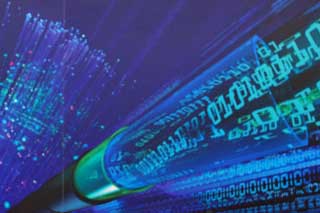AQA Computer Science GCSE
Ethics – Computers and the law
It's important to understand about the UK legal position as it applies to computers. This content will often be required in any Unit 8 answer – whether it's hacking, wireless technologies or the rise of autonomous vehicles.
You don't need to know a huge amount, but being able to quote the right Act of Parliament and know what it does is a good starting point (the top two are the most important...).
| Law | Date | What it does | Topic area |
|---|---|---|---|
| Computer Misuse Act | 1990 | Deals with accessing or altering files and/or computer systems without permission – i.e. hacking. This includes writing or distributing malware as well as hacking or using social engineering to gain access to files or computers.
Find out more at BBC Bitesize (ICT) |
Hacking Mobile techs Wireless networks |
| Data Protection Act | 1998 2018 |
Revised in 2018
Requires people who collect or hold data on someone to keep it secure and delete it after it is no longer required. Aims to keep data secure. Find out more at BBC Bitesize (ICT) |
Privacy Applies to most areas |
| General Data Protection Regulation | 2018 | GDPR is a European regulation which requires organisations to be transparant in the data they hold. It works along similar lines to the Data Protection Act. Web cookies are an obvious way that GDPR has restricted what organisations can do without the permission of users.
BBC video about GDPR Find out more at BBC Bitesize (Scottish site) After the UK left the European Union, GDPR was retained in UK law as UK GDPR, so it still applies. In theory this could get changed, but UK companies which wanted to trade with the EU would still need to comply with the EU GDPR, so this would simply add two different requirements to meet. |
Privacy Applies to most areas |
| Communications Act | 2003 | Accessing an internet connection with no intention to pay for the service is illegal. This applies to secured networks only.
Also covers sending grossly offensive, obscene or menacing messages over an electronic network (e.g on Twitter or e-mail) Wikipedia has more on this |
Wireless networks |
| Copyright, Designs and Patents Act | 1988 | Protects the rights of designers to not have their work copied by others - their "intellectual property rights" are protected. This ensures that they can make money from their work. Applies to resources such as images, but also to software code.
Find out more at BBC Bitesize (ICT) |
Autonomous vehicles |
| Digital Economy Act | 2010 | Further protects the rights of electronic copyright holders. Extended in 2017.
Wikipedia has content on the 2010 Act |
Autonomous vehicles |
| Online Safety Act | 2023 | Covers a wide range of online issues, including attempting to regulate social media and content on websites and to allow the authorities access to encrypted messaging services. It will pass the requirement of keeping people safe on to providers, but also requires them to protect free speech.
BBC article – 24 January 2022 BBC: act passes parliament – 26 October 2023 BBC: how does it work – 8 May 2024 BBC: one year on, is it working? – 25 October 2024 There are a wide range of issues with this and doubts about whether much if it actually workable, especially access to encrypted messages. |
Privacy Networks |
A set of questions designed to develop your understanding of GDPR and data privacy are provided here:
